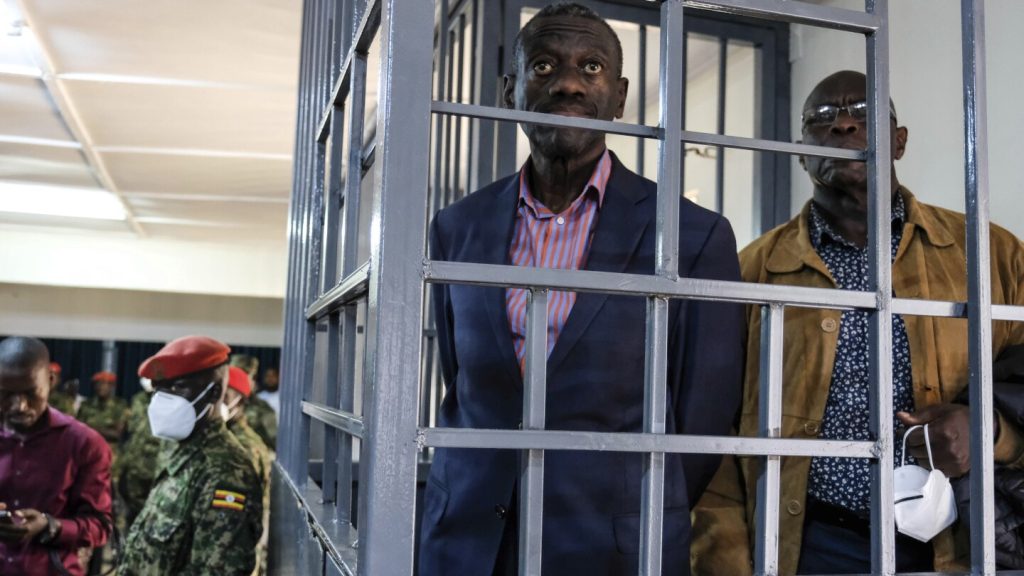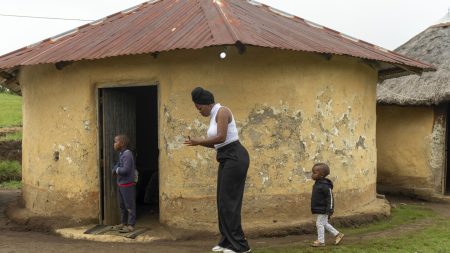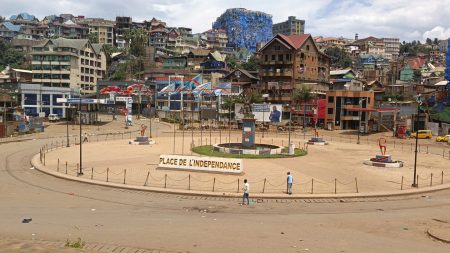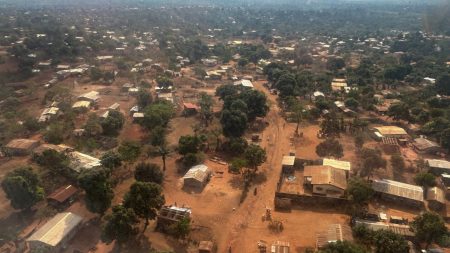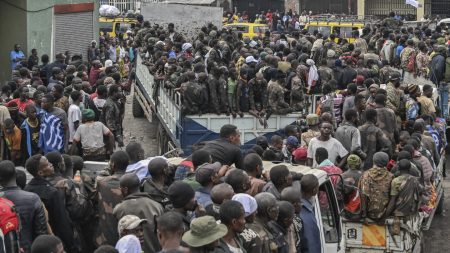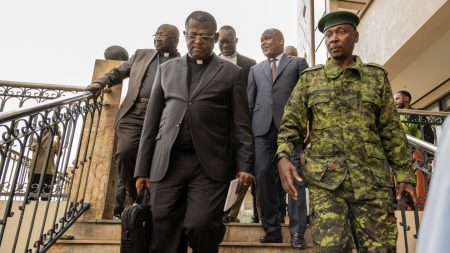The Unlawful Detention of Kizza Besigye and the Fight for Justice in Uganda
Introduction: The Arrest and Legal Challenge
Ugandan opposition leader Kizza Besigye, a four-time presidential candidate, has been at the center of a legal and political storm following his abduction and detention in late November. Besigye, who has been a vocal critic of President Yoweri Museveni’s authoritarian rule, was taken from Nairobi, Kenya, on November 16 and later appeared before a military tribunal in Kampala, Uganda’s capital. He faces charges of illegal possession of a firearm, threatening national security, and the more severe offense of treachery, which carries the death penalty. However, the proceedings have been thrown into question after Uganda’s Supreme Court ruled that civilians cannot be tried in military courts, a decision that has been welcomed by Besigye’s supporters and legal activists as a potential turning point in his case.
The ruling has sparked widespread debate about the legality of Besigye’s detention and the broader issue of military trials for civilians in Uganda. Opposition leaders and human rights organizations have called for Besigye’s immediate release, arguing that his detention and trial violate both Ugandan law and international human rights standards. The case has also drawn attention to the tense political climate in Uganda, particularly as the country approaches presidential elections scheduled for next year.
The Supreme Court Ruling: A Victory for Civil Liberties
The ruling by Uganda’s Supreme Court that civilians cannot be court-martialed has been hailed as a significant step forward for justice and human rights in the country. The court’s decision undermines the legality of Besigye’s military trial and raises questions about the competence of military officers to preside over cases involving civilians. The ruling has been interpreted as a rare check on President Museveni’s authority, who has been in power since 1986 and has long been accused of suppressing political dissent through arbitrary arrests and military trials.
Opposition lawmakers, including Ibrahim Ssemujju Nganda, have argued that Besigye’s continued detention in Luzira Maximum Security Prison is illegal in light of the Supreme Court’s decision. "Besigye is in Luzira now illegally," Nganda stated, emphasizing the need for his immediate release. Similarly, Kampala Mayor Erias Lukwago, a close associate of Besigye, called on Ugandans to uphold the court’s ruling, asserting that citizens are "duty-bound to enforce" the law.
The ruling has also been celebrated by international human rights organizations. Oryem Nyeko, a senior Africa researcher at Human Rights Watch, described the decision as a major step toward protecting the right to a fair trial in Uganda. He called on the government to ensure justice for civilians who have been wrongly convicted or are awaiting trial under the now-discredited military trial system.
The Government’s Response: Defiance and Resistance
Despite the Supreme Court’s ruling, President Museveni has made it clear that he does not intend to abide by the decision. In a statement following the ruling, Museveni declared, "The country is not governed by the judges," a assertion that has been interpreted as a direct challenge to the judiciary’s independence. The president’s defiant stance has heightened tensions in an already volatile political environment, with many fearing that the government will continue to disregard the rule of law in its efforts to silence opposition voices.
The ongoing detention of Besigye has further fueled concerns about the government’s commitment to justice and human rights. Besigye was expected to appear before the military tribunal again on Monday, but the hearing was postponed amid heavy police and military deployment outside the court premises. The lack of progress in his case has led to accusations that the government is deliberately dragging out the proceedings to keep Besigye behind bars ahead of the 2024 elections.
Amnesty International has also weighed in on the matter, calling for Besigye’s immediate release and condemning his "abduction" as a clear violation of international human rights law. The organization has emphasized that Besigye’s extradition from Kenya and subsequent trial lack the necessary legal protections, further undermining the legitimacy of the proceedings.
The Broader Implications: A Nation on Edge
The developments in Besigye’s case have taken place against a backdrop of growing anxiety in Uganda as the country approaches next year’s presidential elections. Museveni, who has been in power for over three decades, is expected to seek re-election, but rumors have emerged that he may step aside, potentially triggering a fierce succession battle within his National Resistance Movement (NRM) party. The lack of an obvious successor has fueled fears of a chaotic and unpredictable political transition, further destabilizing the already tense environment.
Besigye, a retired colonel and former personal physician to Museveni, has been a thorn in the president’s side for decades. As the former president of the Forum for Democratic Change (FDC), Uganda’s main opposition party, Besigye has consistently challenged Museveni’s authoritarianism and called for democratic reforms. His long history of political activism has made him a symbol of resistance against the government, and his current detention has galvanized opposition supporters and civil society groups.
Despite his many arrests and a history of brutal treatment at the hands of security forces, Besigye has never been convicted of a crime. His continued detention has been widely condemned as a politically motivated attempt to silence him ahead of the elections. The ongoing saga has also highlighted the broader challenges facing Uganda’s justice system, including the frequent use of military trials to target civilians and the erosion of judicial independence under Museveni’s rule.
Besigye’s History: A Legacy of Resistance
Kizza Besigye’s political career has been marked by unwavering opposition to President Museveni and his regime. A qualified physician and retired military officer, Besigye served as Museveni’s personal doctor and military assistant in the 1980s before their relationship soured in the 1990s. Besigye’s break with Museveni came after he became disillusioned with the president’s increasingly authoritarian tendencies, which he publicly criticized in a 1999 document titled "An Insider’s View of How the NRM Lost the Broad Base."
Since then, Besigye has become one of Uganda’s most prominent opposition figures, leading the FDC and running for president four times. His campaigns have been marked by widespread support, particularly in urban areas, but have also been marred by violence, intimidation, and electoral irregularities. Despite these challenges, Besigye has remained a powerful symbol of resistance against Museveni’s rule, earning him both admiration from his supporters and the ire of the government.
Besigye’s current detention has drawn international attention, with human rights groups and foreign governments calling for his release. His case has also brought renewed scrutiny to Uganda’s human rights record, particularly its treatment of political dissenters and the use of military trials to silence opponents. As the country moves closer to the 2024 elections, Besigye’s fate has become a flashpoint in the broader struggle for democracy and justice in Uganda.
Conclusion: Uganda at a Crossroads
The ongoing detention of Kizza Besigye and the legal challenges surrounding his military trial have thrust Uganda into the international spotlight, highlighting the country’s strained political environment and its struggles with authoritarianism. The Supreme Court’s ruling that civilians cannot be court-martialed has offered a rare glimmer of hope for justice in Besigye’s case, but the government’s defiance and continued detention of the opposition leader have raised concerns about the rule of law in Uganda.
As the country approaches the 2024 presidential elections, the stakes could not be higher. With Museveni’s future uncertain and Besigye’s liberty hanging in the balance, Ugandans are bracing themselves for a potentially tumultuous period. The international community has a critical role to play in ensuring that Besigye’s rights are upheld and that Uganda’s democratic aspirations are given a chance to flourish. For now, the outcome of Besigye’s case remains uncertain, leaving Uganda teetering on the edge of a precipice, with its future hanging in the balance.





